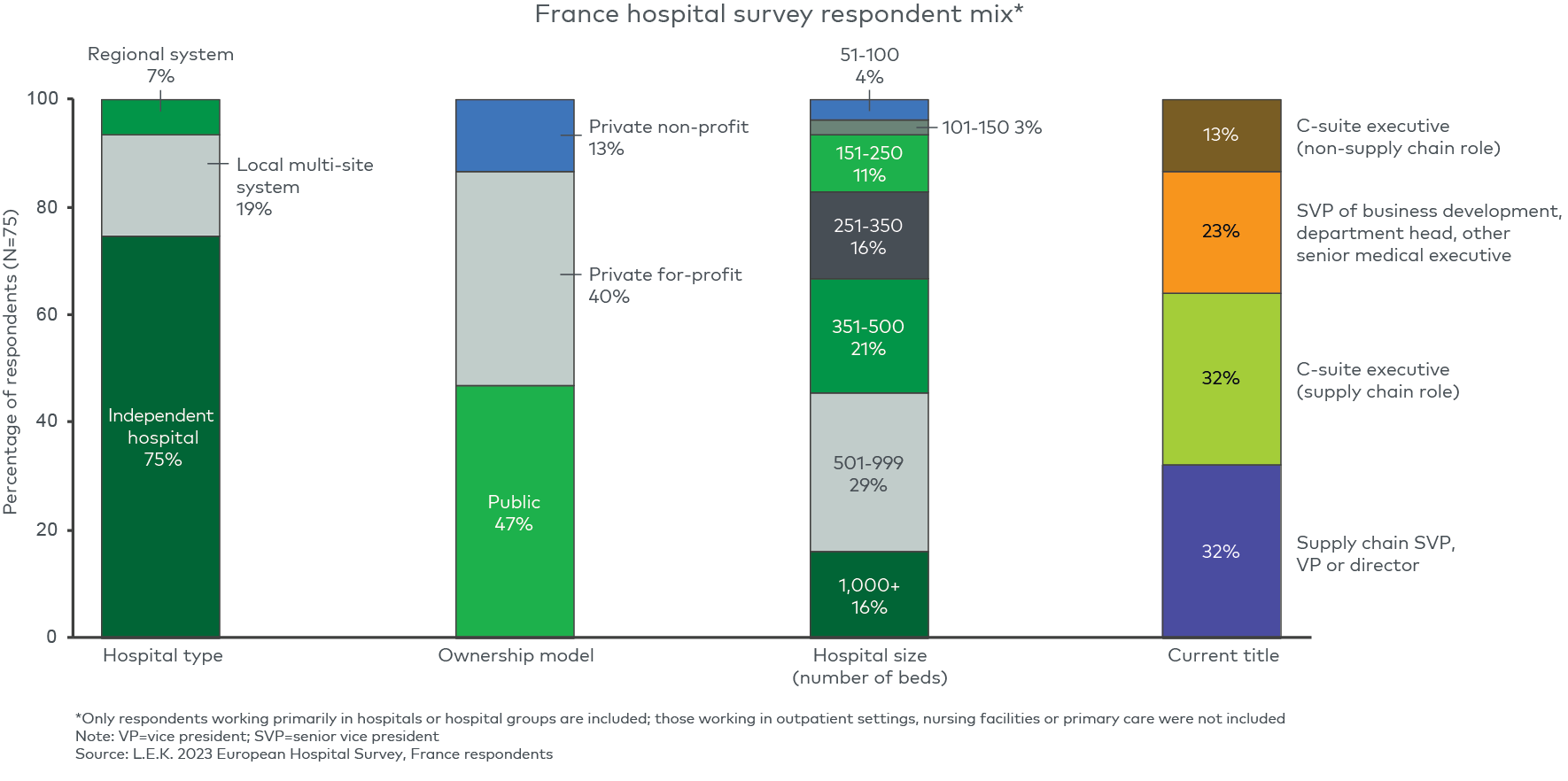Quality of clinical and patient care
Improving quality of care continues to be an important focus for private and public hospitals in France, especially following the impact of the COVID-19 pandemic, which delayed or reduced access to care for many people. In addition, the Incitation Financière à l’Amélioration de la Qualité (Financial Incentive for Quality Improvement) budget, which provides additional funding to hospitals based on quality-of-care criteria, creates a positive incentive for hospitals to focus on improving care quality.
Accordingly, France’s top five strategic priorities (by percentage of scores of 6 or 7, where 7 means ‘very important’) all relate to clinical and patient care — reducing medical errors, improving patient satisfaction, improving infection control, standardising best practices in care delivery and improving performance on quality metrics. Clearly the ability to improve on several of these priorities is highly dependent upon reducing the current staffing shortage in France, which will be discussed shortly. By addressing both of these in tandem, hospitals are more likely to achieve their long-term quality-of-care goals for patients.
Staffing
Staffing remains a top priority for many hospitals in France, with shortages across clinical and non-clinical staff. Thanks to the Ségur de la Santé agreements (introduced in July 2020), compensation for some public hospital staff has increased significantly — for general care and specialist nurses, c.10%-20% in 2020 and 2021 depending on their tenure, but the sector is still having difficulties with recruitment. Some hospitals have had to reduce their bed capacity, and in 2021 there were reports of c.20% of public hospital beds remaining closed due to lack of staff.
As expected, the L.E.K. 2023 European Hospital Survey shows that attraction and retention of non-clinical and allied medical staff and nurses are considered moderately to very important by c.55%-60% of respondents, and these represent the top staffing-related priorities. Notably, attraction and retention of nurses are considered more important to public than private (includes non-profit and for-profit) hospitals. Attraction and retention of physicians are also considered important, but less critical than the staffing issues for nurses and non-clinical staff (c.50% considered it moderately to very important).
Other priorities
Two financial considerations are also within the top 10 priorities for French hospital respondents. These are improved capital utilisation (especially for private hospitals) and participation in more value-based arrangements, each considered moderately to very important by c.60% of respondents.
This reflects the high healthcare spend by hospitals in France (France’s healthcare spending was seventh-highest in the EU on a per capita basis in 2019) and the need to reduce spending and more carefully consider capital utilisation to maximise benefits to patients with the funding available.
In terms of development priorities, some hospitals are looking for opportunities to grow along the value chain by creating diagnostic centres or acquiring rehabilitation facilities.
Some hospitals in France are looking to grow and are considering expanding their footprint across the patient journey via acquisitions, partnerships or mergers.
In the L.E.K. 2023 European Hospital Survey, creation of specialist diagnostic centres and acquisition of or partnership with rehabilitation facilities are the two most likely growth strategies to pursue over the next three years (see Figure 2). Diagnostic procedures are often carried out prior to hospital treatments, and rehabilitation complements a hospital’s offering by enabling them to provide continued support after a patient has left hospital. The results indicate a desire for some hospitals to extend their reach along the patient journey, and that is contributing to the trend towards consolidation within the French hospital market.















